I’ll be honest – I saw Rebecca’s top 10-book-to-movie adaptations list last week and I reacted to it so strongly that I felt the need to write my own. I didn’t disagree with all of her picks (I also thought last year’s version of The Great Gatsby was rather underrated), but Twilight? Really, Twilight? Justice must be served.
Of course, my opinion is no more valid than hers, but I had to put my own list out there too. These movies qualified not for their accuracy to the source material, but for their ability to recapture what made the original special as well as stand on their own.
10. High Fidelity (2000)
Nick Hornby’s debut novel High Fidelity was an intent capturing of the author’s own audiophilia and relationship insecurities, but he went on to write many far better novels (particularly 2009’s Juliet, Naked, which is a much more self-aware and cathartic telling of the same sort of story). The film, meanwhile, found how to make the mediocre source material into something special. The constant breaking of the fourth wall, the brilliant-by-necessity soundtrack, the flawless lead performance by John Cusack as well as Jack Black’s stellar breakthrough as Barry – everything the movie added, it added for the better.
9. The Graduate (1967)
The fact that The Graduate is still considered one of the best comedy films around after 50 years is certainly a testament to the film’s lasting resonance and innovative humor; the fact that almost no one remembers that the book was based on Charles Webb’s slightly-autobiographical novel demonstrates the quality of the adaptation. Dustin Hoffman and Anne Bancroft are fantastic in the leads, the haunting narrative and moral complexity remains powerful, and the movie boasts one of the funniest and most memorable endings in film history.
8. Fight Club (1999)
This is a default inclusion on lists like this, mainly because the original author Chuck Palahniuk has said on a few occasions that he actually prefers the movie version, and his planned sequel actually uses the film’s ending rather than the book’s. But even if he’d never given the film such validation, Fight Club could have been a relative disaster given the difficulty of making its twist work in a visual environment. Instead, Fincher’s mastery of tone combined with Pitt and Norton’s spot-on performances make this a clever and visceral thriller, even if most of its fans don’t seem to actually understand what it’s about. (Fincher’s new film Gone Girl almost made the list as well, and I’d say with confidence that it’s his best movie to date, but Fight Club has already stood the test of time.)
7. Requiem for a Dream (2000)
The quintessential answer for “What’s the most intense/depressing/powerful movie you’ve ever seen,” Requiem for a Dream is brilliant on every level. Its pacing, its nuanced performances, its moments of unique cinematography, its equal balancing of four different character arcs, its spiritually decimating ending – it’s a film that makes its gradual spiral into darkness work perfectly. It’s the movie everyone should see, even if they can never bring themselves to see it again.
6. Fantastic Mr. Fox (2009)
Once again, this one works largely because of its success with its tone. Wes Anderson may annoy some with his quirky-to-the-max signature aesthetic, but in a stop motion adaptation of a Roald Dahl book, the stars seemed to align to let the director’s style flourish. Many go to stop-motion in particular for a nostalgic, feel-good sort of tone, and Fantastic Mr. Fox fulfills this desire both without becoming overly obvious about this intent and without censoring its darker themes. There are few other children’s movies that exhibit such unique pacing and cram their scenes with so much value on a beat-by-beat basis.
5. There Will Be Blood (2007)
This one works largely thanks to the uniting of two people who are outrageously good at their jobs: Paul Thomas Anderson and Daniel Day-Lewis. P. T. Anderson made an enormous shift from the dark comedies Boogie Nights and Punch-Drunk Love to historical epic tragedy; Day-Lewis’ took his usual method acting to the extreme, working on the role for years and refusing to break character while on set. This adaptation of Upton Sinclair’s novel Oil! could have easily failed to resonate with a modern audience, both for its datedness and its lack of likable characters. Instead the movie is a modern masterpiece, a sweeping, desolate and complex exploration of religion and the American Dream, all as Day-Lewis conquers the story with his incredible performance.
4. Trainspotting (1996)
Trainspotting probably shouldn’t have worked at all as a film. A series of short stories about heroin addiction compressed and put together as one linear narrative? You’re just asking for failure. And yet Danny Boyle manages to not only tie it all together with surprising fluency, but he turns all of the book’s great writing moments into spectacular filmmaking moments. Some of these, such as Renton’s dive into a public restroom and his terrifying withdrawal montage, are among the most beautiful sequences I’ve ever seen.
3. Adaptation (2002)
Admittedly, this one barely counts, and it’s by far the least accurate to the source material on the list. But hey, the opening credits still bill the film as based on The Orchid Thief, so Adaptation wins for being perhaps the most creative and poetic license-indebted film adaptation around. In the usual bizarre style of Charlie Kauffman, the film only focuses on the plot of the book about a third of the time, otherwise autobiographically focusing on Kauffman’s own attempt to write the screenplay. Yes, the metafiction is strong with this one, and the movie pulls off jokes that basically no other movie could. And Nicholas Cage is actually really good in it? What witchcraft is this?
2. The Shining (1980)
Most of Kubrick’s career could easily make it on this list – 2001: A Spaaace Odyssey, A Clockwork Orange, Full Metal Jacket, Lolita, and Dr. Strangelove are all classic adaptations – but nothing sticks (mostly in your nightmares) quite like The Shining. Jack Nicholson already seems a little crazy in all of his roles, so once he gets the chance to play someone legitimately insane, he puts on easily the greatest performance of his career and possibly one of the best of all time. Kubrick never leaves a moment without some degree of haunting anxiety, and its high points are outright terrifying. The Shining is so layered with depth that there’s an entire other film dedicated just to fan interpretations of it – how many movies can boast that?
1. No Country for Old Men (2007)
The most powerful film in the Coen Brothers’ legendary career, No Country For Old Men is not just an impeccable movie, but an impossibly good adaptation. Cormac McCarthy’s sparse, minimalistic writing style generates an atmosphere so bleak that it’s nearly impossible to recreate, and yet the Coens managed to transfer their already-dark filmmaking to exactly that, crafting every moment to deliver maximum impact. The gore is tasteful yet nauseating, Javier Bardem is a revelation, and the midpoint twist is brilliantly unprecedented. The result is a beautifully unique, stunningly performed, punishing gutpunch of a film, just like the book and then some.
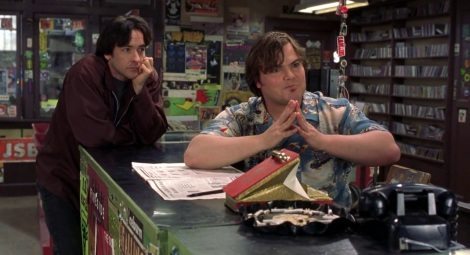

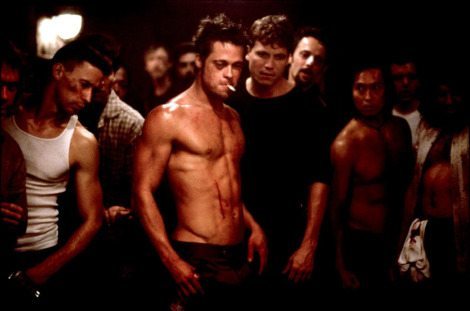
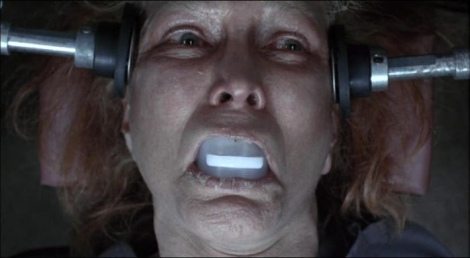
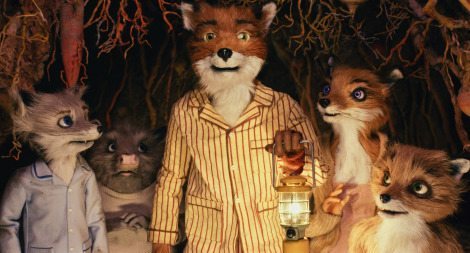
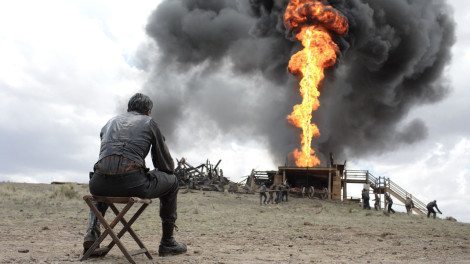
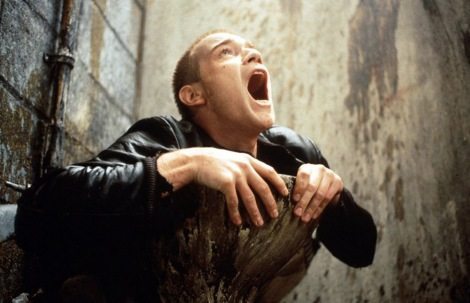
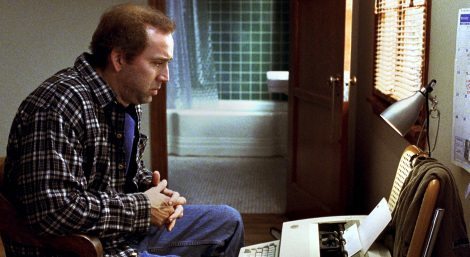
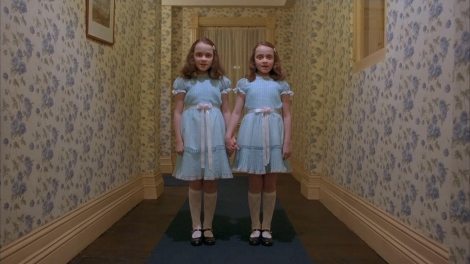
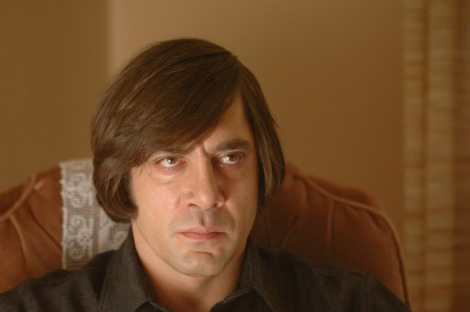
Definitely agree with the ranking of “No Country for Old Men”, A+ choice!
Same! Cormac McCarthy is an absolute genius. The Counselor blew me away as well.
So, the other list was rating the movies based on their closeness to the source material, but you picked your movies solely because you liked them and they also happened to be based on books?
At least two of your choices are barely related to the book. Why even bring up the book then? Why don’t you just make a list of movies that some guy likes to watch?
@Evan K
The point being made here is that an adaptation’s quality does not revolve around it’s faithfulness to source material, but it’s ability to either convey the same feeling using the unique tools of a different medium or simply offer a new (equally or more compelling) interpretation of the same premise. All the films listed here are ones that have established an identity in the canon of film independent from their status of “based on the bestselling novel by…”.
I would take the argument a step further and say that there’s really no point in adapting something to another medium if the intent is not to say something new with it, which may or may not necessitate deviation. Aside from the obvious profitability of doing so, why would an artist want to create a carbon copy of a pre-existing work (essentially making disposable art)?
@Evan W
You’re reading awfully deep into the half-sentence the author used to dismiss the fact that his list is poorly assembled. Yes, a story must adapt to new forms of media, but only because different forms of media excel at different things. The more you change the story, the less of the original you get. The point of turning a book into a movie isn’t to “say something new.” Its to express the original in a new way that’s accessible to a different group. Why bother creating a story, characters, or a message if they’re as interchangeable as an oil filter? You don’t keep the same “spirit” of something if you change 90% of it. Even if that were true, then why not write a list of movies that strayed from the original but the kept the “spirit?” This is just a facebook-like-list of some movies that do and some that don’t, no point in reading it.
I don’t ever recall people discussing a book-to-movie and not complaining about everything that was changed, do you?
I mean, love Fantastic Mr. Fox. Great movie. But its basically fan-fiction.
I realize now that oil filter wasn’t the best analogy, you kinda got to stick to one size. Use “brand of oil filter” or something. Need. Coffee.